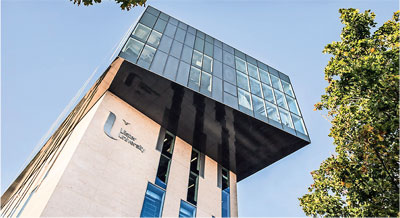Legal Education in the age of Covid-19 Pandemic
View(s):
Dayanath Jayasuriya
World-wide the COVD-19 pandemic has posed a major challenge to all sectors, including the educational sector. Schools, colleges and universities have had to close down for indefinite periods of time without student access to campuses, libraries and laboratories.
Most institutions have readily adapted themselves to the so-called ‘new normal’ norm whereby face-to-face instruction has been replaced, at least for the next few months, by on-line lectures using various computer and mobile phone applications.
In a sense, we are fortunate that the pandemic affected us this year rather than 10 or 20 years ago when such applications were unheard of or unavailable.
The Nawaloka College of Higher Education (NCHS) offers the only foreign LL.B. programme in Sri Lanka which takes a 2 plus one year format. In other words, during the first two years students follow the Ulster University law syllabus and lecture schedules at NCHS in Colombo and during the third and final year they will be joining the Ulster University campus in Belfast, Northern Ireland, where on successful completion of examinations they will earn the Ulster University LL. B. degree.
This degree is a pathway to seeking admission to professional qualifications for those who wish to acquire such qualifications.
The Ulster University degree is one of the University Grants Commission recognized degrees in Sri Lanka.
The first batch of students at NCHS completed their first year in 2020 with most of them attaining very high marks. Examination scripts and written assignments are first assessed by a team of local subject specialists and thereafter moderated by Ulster University senior staff. Students have on-line access to the world’s best legal databases.
In the wake of the COVID-19 pandemic many legal issues have arisen which were never envisaged before. Curfews and lockdowns have necessarily meant delays in the completion of projects and in fulfilling contractual obligations.
Many millions have lost jobs. Financial institutions have had a setback in recovering loans and other dues. Litigation and arbitration proceedings have already commenced in many parts of the world seeking legal remedies and redress.
At NCHS, every attempt is being made to tailor the programme that would enable the students to acquire skills and experience that would enable them to match the requirements of legal professionals and of the corporate world where there is an increasing demand for graduates with British qualifications.
In Year 2, students will gain further experience in mooting as well as in studying subjects such as Public Interest Litigation not commonly a part of the law school curriculum. More importantly, NCHS will be introducing an entirely new module on “Legal Issues relating to COVID-19.”
The local media is replete with advertisements offering a range of Law degrees and parents are often baffled as to which programme best suits their children. The NCHS- Ulster University is a cost-effective programme in that students need to spend only the last year in Belfast, which is one of the cheapest cities in the U.K. as far as living expenses are concerned.
Moreover, students are given the flexibility to engage in remunerative work. Another important consideration is the standing of the university. According to surveys of academic institutions, Ulster University is ranked as No. 1 in the U. K. for research impact in Law and is within the top 2% of the World Young University Rankings in 2018. In terms of the subject coverage, it offers the best ‘mix’ of subjects most suitable to launch a career, whether international or local, in law.
I visited Ulster University last September to give a public lecture and was quite impressed with the quality and commitment of the Law School staff and accommodation and library facilities. Some of the post-graduate students whom I met were very pleased that they had chosen Ulster University for their studies.
- Dr. Dayanath Jayasuriya P. C.
Senior Academic Adviser (Law), NCHS


